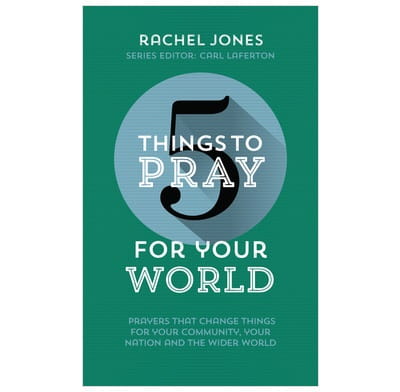What to Remember When Prayer Feels Like a Chore

Our desire to talk to someone is directly related to what sort of person we find them to be.
Most of us probably have memories of someone—in our family, a teacher, a youth leader or an older person at church—who took an interest in us when we were younger. They got to know us, and showed patience with us, and gave time to us. They didn’t constantly reprimand us. They didn’t just call to us as they hurtled off to do something more important. They didn’t talk over us to others as if we were furniture.
That person was probably someone we were happy to spend time with. A conversation with them wasn’t a chore to wriggle out of as quickly as possible. Time didn’t drag when we were with them. Perhaps we actively sought them out. Perhaps spending time with that person was a highlight of our childhood.
A person’s lack of interest is enough to discourage us from talking to them, but how much more difficult it is to approach someone from whom we fear criticism, or anger, or disgust. The threatening boss, the fault-finding relative, the intimidating mom at the school gate. Relating to them is something we do only because we have to, or because we’re compelled by a sense of duty.
And this is how many people today feel about God—that he’s distant, grudging, nit-picking, unsympathetically harsh, unpredictably wrathful, unreasonably strict in his demands of us. So it’s no wonder that for many of us…
“Prayer may conjure up a heavy sense of duty—something we ought to do, and struggle to do.” (Real Prayer: Connecting with our heavenly Father)
A couple of weeks ago we saw that the number one reason we struggle to pray is that we believe a lie about ourselves—we think we don’t really need to pray. A second reason we struggle to pray is that we believe a lie about God’s character.
We’ve got God all wrong.
In Jesus’ parable of the prodigal son (Luke 15), the rebellious younger son ends up starving in a faraway country. Then he remembers his father’s character and generosity—“he came to his senses”—and he starts to think about going back home. However desperate the son’s need, if he could only picture his father as a terrifying tyrant, he would have struggled to take even one step on that return journey.
It’s the same for us. If we don’t have the Bible’s view of God, even a clear understanding of our own insoluble need won’t galvanise us to pray. If we come to God at all, it will be with gritted teeth and a dull, dutiful heart, and prayer will soon fall by the wayside.
The antidote to duty-driven prayer
But the wonder of Jesus’ parable is that at the prodigal son’s homecoming, the father is so completely lavish in grace, forgiveness and sheer delight towards his son. It surpasses anything the youth could ever have imagined.
But there’s an even greater wonder about God’s track record, recorded in the Bible. God has demonstrated this unimaginable love without ever compromising his holiness—without softening in the least degree his implacable hostility to any wrongdoing. It was something that could only happen at terrible cost—the anguish, death and judgment for sin suffered by the light of the world, the eternal Word, the one who is “in the closest relationship with the Father” (John 1 v 18), who is “in very nature God” (Philippians 2 v 6): the Son of God, Jesus Christ.
In Jesus’ parable of the Pharisee and the tax collector (Luke 18), the tax collector probably didn’t know much other than that he was a wretched sinner, but he must have known at least one thing more than that… he knew that he could ask God for mercy. He knew about the holiness of God, but he also must have known about the grace of God.
One thing that well-taught Christians know is that our sin has made us deserving of God’s wrath. Sometimes we remember that one thing but forget other things we need to know equally as well. So Paul writes, “We were deserving of wrath. But because of his great love for us, God, who is rich in mercy, made us alive with Christ…” (Ephesians 2 v 3-4).
As Jesus’ story of the forgiven runaway son shows, that mercy has made us children of our heavenly Father, created to live in a close, warm relationship with him, as part of his family, with all the protection, provision and privileges which that entails. Remembering the kind of Father we can come to will draw us to real prayer.

Anne Woodcock is an editor at the Good Book Company and active in teaching the Bible to internationals, women and children. She is married to Pete, with two children.
This article originally appeared on TheGoodBook.com. Used with permission.
Image courtesy: ©Thinkstock/fizkes
Publication date: August 31, 2017
Originally published April 25, 2018.





